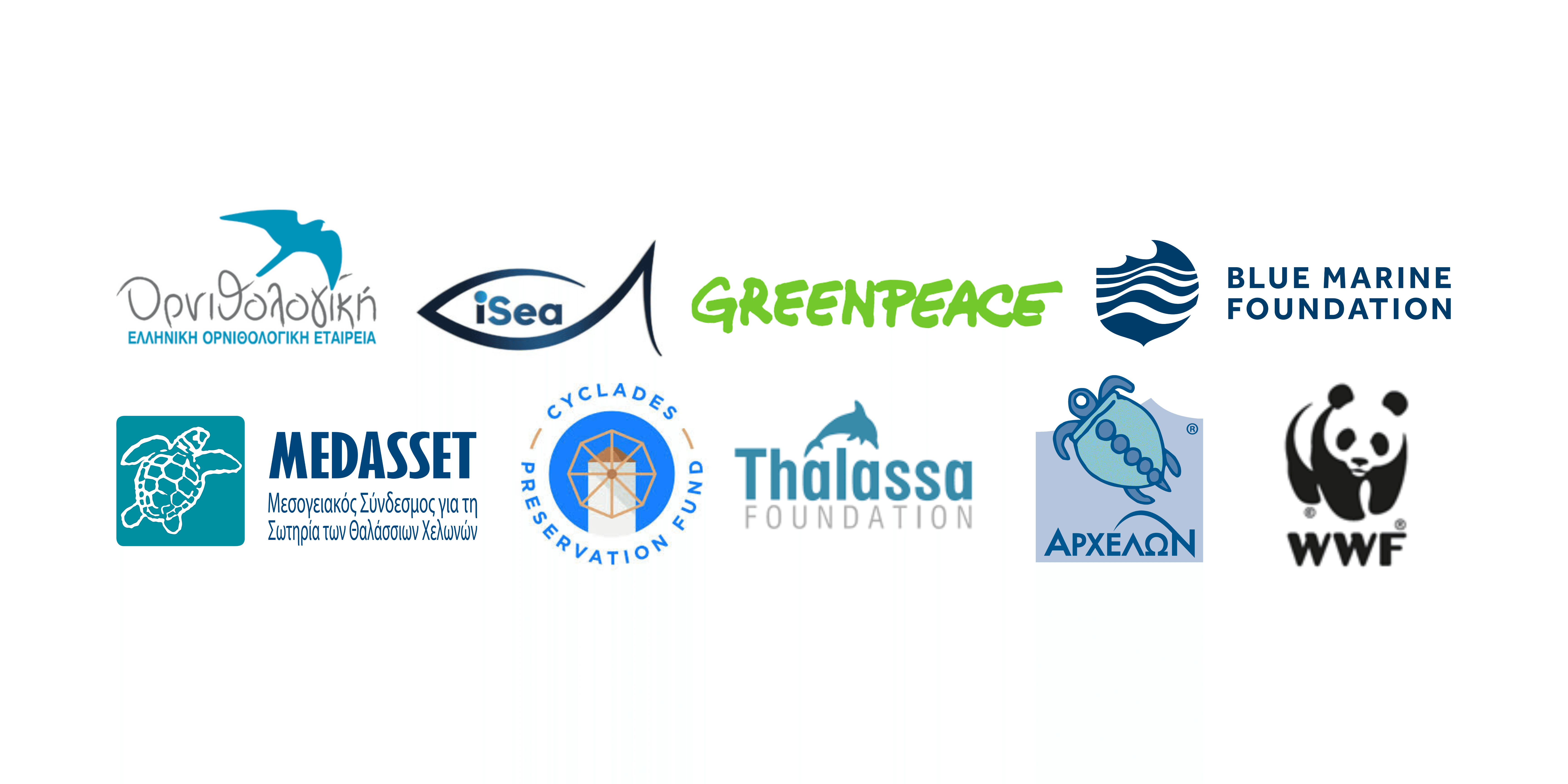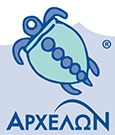Greece's Marine Protected Areas remain unprotected

It is striking that only 12 out of Greece’s 174 marine Natura 2000 sites currently have a protective regime status, which in most cases, is limited to temporary or fragmented measures. Practically, this means that only 3.4% of Greece’s national waters are only partially protected, despite the country’s legal commitment to effectively protect at least 30% of its marine areas by 2030, through the establishment of a network of marine protected areas (30x30 target). In April 2024, during the 9th Our Ocean Conference, hosted in Athens, Prime Minister Kyriakos Mitsotakis announced a series of new commitments, some of which are directly addressing the management of Greece’s Marine Protected Areas (MPAs). While these commitments are deemed positive and in the right direction, the country has long delayed fulfilling its existing regulatory obligations.
In this context, an evaluation report on the management and conservation status of marine protected areas (MPAs) in Greece was published today by nine (9) Greek environmental organizations. The report reveals serious gaps in key areas, crucial for the MPAs’ effective protection and the conservation of sensitive habitat types and endangered species; legislation and management, governance, conservation, necessary resources. It also formulates specific proposals to achieve the 30X30 target.
According to the conclusions of the report, the serious gaps highlighted are mainly due to the unjustified delay in adopting the necessary presidential decrees (PD) and management plans (MP) for all Marine Protected Areas (MPAs). While the relevant studies have been commissioned ever since 2019, the Ministry of Environment and Energy in charge, has not proceeded with their approval and the issuance of the relevant decrees. The same problem is faced by all protected areas in the country. As the environmental organizations point out in the letter they sent today to the Greek Prime Minister, Kyriakos Mitsotakis, this inconsistency and lack of political will, concerns both the Ministry of Environment and the Prime Minister himself, as he has officially committed internationally that the whole institutional process would be completed by December 2022.
At a governance level, the establishment of the Natural Environment and Climate Change Agency (NECCA), as the central body responsible for the management of protected areas, has helped to ensure that there is a more unified and coherent approach to their management. However, the Protected Areas Management Units remain seriously understaffed, while the inadequate coordination between the relevant ministries and agencies and the weak coordination between the weak participation of local communities remain a problem. According to the report, there is an urgent need to strengthen the staffing and cooperation between the competent authorities and bodies (ministries) as well as effective participation of the local community in order to effectively manage the areas. Finally, and most importantly, as long as institutional protection of these areas is not advanced, NECCA finds itself operating de facto, within institutional gaps and ambiguities about what is and is not applicable in each area. Lack of coordination and understaffing have, among other things, resulted in the guarding and inspections of the MPAs to be considered inadequate. The recently established Nature Conservation Bodies have few staff and limited resources, resulting in serious shortcomings in actual control and sanction enforcements. Without adequate staffing, appropriate equipment and a clear legal framework for the responsibilities and control procedures, infringements will not be punished, undermining the very concept of Protection.
Finally, on the issue of resources, as the organizations explain, substantial funding and, at the same time, effective absorption and allocation of funds to meet the needs of the Management Units and NECCA, as well as the need for the systematic implementation of the actions are deemed necessary for each of the MPAs. Given the commitment to achieve the '30X30 target', the government should immediately ensure that the necessary resources are made available for the sustainable and effective operation of the MPAs. It is also necessary to develop long-term and stable funding systems that will ensure the sustainable operation of the MPAs, irrespective of European or other exceptional funding sources. The report makes it clear that unless there are immediate and decisive interventions in the management/legislation, governance, conservation and resources, Greece risks once again being inconsistent with its international obligations; and most importantly, that our seas remain without effective protection.
The following environmental organizations contributed to the development of the assessment report:
- ARCHELON, the Sea Turtle Protection Society of Greece
- Blue Marine Foundation
- Cyclades Preservation Fund
- Greenpeace
- Hellenic Ornithological Society
- iSea
- MEDASSET
- Thalassa Foundation / Aenaos Thalassa
- WWF Greece
Notes/Accompanying material:
-
The evaluation report was developed in the framework of the project “Promoting the 30X30 objective of an ecologically representative, coherent and well-managed marine network of MPAs in Greece” implemented by WWF Hellas and Greenpeace, funded by Oceans 5.
-
The full study is available in Greek HERE
-
The summary in Greek HERE
-
The corresponding summary in English HERE
-
MPAs are areas of particular ecological - and not only - importance, as they host important and threatened habitats, such as the seagrass Posidonia, as well as important and endangered marine species, such as sea turtles, blowholes, sea lions, dolphins, the Mediterranean seal and others. The network of Marine Protected Areas in Greece was significantly expanded in December 2017 with the inclusion of new marine protected areas in Natura 2000 network. The MPAs now cover an area of 22,796 km 2 and cover 18.3% of Greek waters.
Is there any progress on establishing an all-embracing Marine Park in the Ionian Sea?
2025 Projects: Is it your turn to save the sea turtles?
RECENT NEWS
- OUR NEWS24/02/2026
32 Years Returning to Nest: A Record Reproductive Lifespan for the Loggerhead Sea Turtle in Kyparissia Bay
When we analyzed the turtles’ codes, we realized that this was a turtle that had been tagged for the first time in the area 32 years ago! Specifically, turtle P4849 was tagged on July 7, 1993 and today is the turtle with the longest documented reproductive lifespan in Kyparissia Bay!
- OUR NEWS18/02/2026
"The Mediterranean We Protect" ARCHELON Presented the 2025 Results and the New LIFE MareNatura Exhibition
The presentation of our Accounts for 2025 was held with great success on Saturday, February 14th in Glyfada, honoring the people who are on the front lines for the protection of the Mediterranean.
- OUR NEWS11/02/2026
ARCHELON in the Lakonikos Bay: Nature, Research, Volunteering
The year 2025 was a milestone: a total of 1,253 nests were recorded and protected, while 7 female turtles were equipped with satellite transmitters, sending valuable data about their journeys across the Mediterranean.
- OUR NEWS23/01/2026
A turtle we treated 10 years ago was found in Spain!
“Castello” is a male Loggerhead turtle that was treated at our Rescue Centre in 2015. In 2025 he was found again at a Rescue Centre in Spain!
- OUR NEWS02/01/2026
Against All Odds: A Story of Marine Resilience from Amvrakikos Gulf
One turtle has been surviving for at least six years without a lower jaw!
- OUR NEWS29/12/2025
“Meetings with Remarkable Animals” A Heartwarming Reward for Our Efforts
Kristi Stassinopoulou shared with us a very personal moment: a sketch and a few pages from her book “Meetings with Remarkable Animals"
- OUR NEWS17/12/2025
ARCHELON’s Research: Expanding the Map of Mediterranean Green Turtles
In recent years, some green turtle nests have been recorded in Greece, indicating that the geographical spread of this species’ nesting areas in the Mediterranean is beginning to expand.
- OUR NEWS12/12/2025
The Power Behind Sea Turtle Conservation: Our 2025 Field Leaders
With deep gratitude, we honor all the Field Leaders who contributed to the success of the 2025 Field Projects.
- OUR NEWS10/12/2025
Unprecedented appearance of Leatherback Turtle on a Mediterranean beach
A new scientific record brings to light an extremely rare event for the marine life of the Mediterranean: the first confirmed appearance of an adult Leatherback Turtle (Dermochelys coriacea) attempting to nest in the Mediterranean basin.
- OUR NEWS08/12/2025
Applications Now Open for 2026 ARCHELON Field Leaders Posts!
ARCHELON is pleased to announce that applications are now open for the 2026 Field Leader positions across all nesting projects (applications open until January 31st).
- OUR NEWS05/12/2025
Saving Sea Turtles Together – A Tribute to Volunteers
On Volunteer Day, we take a moment to celebrate all those who came from near and far, put on the blue T-shirt, and embraced this important responsibility.
- OUR NEWS01/12/2025
Laganas Bay, Zakynthos: Successful Loggerhead Reproduction, Ongoing Habitat Problems
On the beaches of the Zakynthos National Marine Park, around 2,155 turtle nests successfully hatched thanks to active protection measures, but human pressures on coastal and marine habitats continue.
- OUR NEWS26/11/2025
A Second Chance: Two Loggerhead Sea Turtles Return to the Sea Thanks to Dedicated Rescues
This summer, two adult loggerhead sea turtles, ‘Aktaia’ and ‘Herbert’, arrived at ARCHELON’s Sea Turtle Rescue Centre needing urgent help after sustaining severe head injuries.
- OUR NEWS11/11/2025
Volunteering Projects 2026: Sea Turtles Need You, the Planet Needs Us!
ARCHELON welcomes volunteers from all over the world and of all ages (over 18) and no prior experience is required! If you speak English, are at least 18 years old, and are in good physical condition, you can do this!
- OUR NEWS10/11/2025
Outstanding Recognition for ARCHELON at the Effective Dialogue Conference 2025
On Thursday, November 6, 2025, ARCHELON received an honorary distinction for its substantial contribution to effective dialogue on sustainability, social responsibility, and the environment


